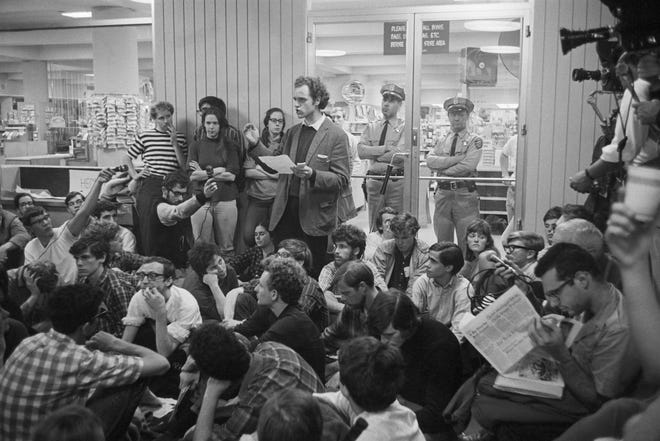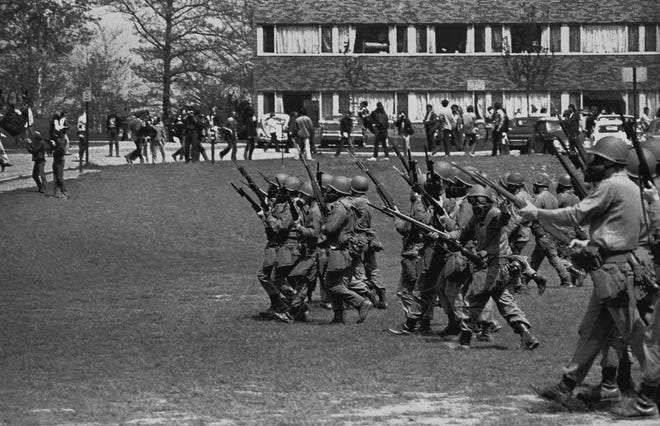During this summer, a team of students from MIT embarked on a journey to the sou …
US College Protests: A History of Student Activism
Jennifer Livingstone

Pro-Palestinian protesters have seized control of sections of universities throughout the U.S., continuing a long series of demonstrations sparked by political activism, with some escalating to violence in the face of police crackdowns.
Historically, protests for free speech have evolved into large rallies, Vietnam War demonstrations have turned deadly, and civil rights protests in the U.S. have resulted in mass arrests.
While each protest had its unique circumstances, the overarching narrative remains the same: Young individuals seeking changes on their campuses or in society, with their fervent demonstrations often escalating amid confrontations with authorities.
The current wave of protests at Columbia University, a focal point, has witnessed similar protests in the past, including during the Vietnam War in 1968. These demonstrations led to the university ending classified war research and halting military recruitment, among other changes, according to Rosalind Rosenberg, a history professor at Barnard College.
Today’s protestors are pushing for specific changes, often advocating for divestment from Israel. They point to the more than 34,000 Palestinian lives lost in Gaza during Israel’s military actions, which were triggered by Hamas’ incursion into southern Israel on Oct. 7, resulting in casualties and hostages.
As campus authorities swiftly respond, citing safety concerns and bringing in law enforcement to disperse encampments, the potential impact of the current protests on the Israel-Hamas conflict remains uncertain.
Several pivotal campus protests in the past shed light on how such demonstrations have become integral to American life, often influencing political outcomes. Here’s a glimpse into the unfolding of past campus protests and their efficacy in bringing about change.
Free Speech Movement at University of California, Berkeley in the 1960s
Starting in 1964 at the University of California Berkeley, students protested the university’s restrictions on political activities and free speech during the civil rights movement and the Vietnam War era.
“Following the anti-Communist sentiments of McCarthyism in the 1950s, public universities in California imposed numerous regulations limiting students’ political activities,” noted Karen Aichinger for the Free Speech Center at Middle Tennessee University.
The initial small protests and sit-ins evolved into large-scale rallies and demonstrations demanding full constitutional rights on campus, resulting in nearly 800 student arrests by local police.
The students’ protests ultimately led to the university rescinding policies that restricted speech content or advocacy, a victory that underscored the significance of protecting free speech and academic freedom.
The University of California, Berkeley’s acknowledgment of the Movement’s legacy as a symbol of free speech protection and academic freedom remains intact.
Vietnam War Protests at Kent State University in Ohio in 1970
In May 1970, Kent State University in Ohio witnessed one of the most intense protests of the Vietnam War, where students opposed the war and the U.S. incursion into Cambodia. Tragically, the National Guard’s violent response led to the death of four young individuals and injuries to many others.
The shootings at Kent State University had far-reaching effects, prompting a nationwide student strike that compelled numerous colleges and universities to shut down.

The Kent State shootings not only impacted national politics but also symbolized the profound political and social divisions of the Vietnam War era.
According to historian Jerry Lewis and Thomas Hensley, these events marked a significant turning point that contributed to the decline of the Nixon administration and highlighted the nation’s deep-seated divisions.
. . .

